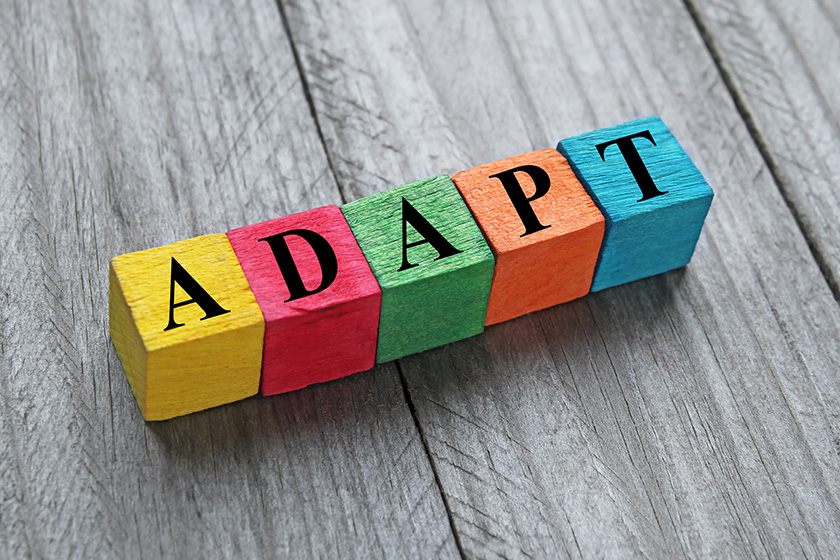Educating will be tremendously rewarding, however we additionally know the classroom will be crammed stuffed with complexity, surprises, and issues to unravel.
‘Adapting educating’ is a lately in style – although long-standing – phrase. It captures the refined and difficult artwork of educating expertly in order that pupils maximise their studying. The immense ability of efficient educating has usually been described as ‘adaptive experience’. It finest describes a steadiness of hard-won, environment friendly educating habits, together with moment-to-moment responsiveness.
Everyone knows these conditions whereby you educate a well-trodden matter, however college students perceive (and misunderstand) it’s new methods every time. It could possibly be the science trainer noting the experiment doesn’t generate the anticipated outcomes and having to rapidly translate this tough situation and fend off any new misconceptions.
Maybe it’s the English trainer studying a set of essays on Macbeth and energy that’s sorely missing significant evaluation of the problematic illustration of girls. That’s regardless of what appeared like hours of educating… the problematic illustration of girls in Macbeth! Time to replan that subsequent lesson…
It may be small misunderstandings, long-standing misconceptions, revolutionary new concepts, or good insights from college students that calls for the responsiveness of ‘adaptive educating’.
What precisely is ‘adaptive educating’?
Lyn Corno, in ‘On Educating Adaptively’ helpfully distinguishes ‘adaptive educating’ and describes various kinds of variations. She describes ‘macro-adaptations’ as adjustments to the curriculum or grouping college students otherwise. Then there are ‘micro-adaptations’ that kind the bread of butter of lecturers tweaking their plans and responding sensitively to their college students.
It’s the ‘micro variations’ which I believe are key to the professional trainer and their potential to be attentive to studying. Corno neatly describes them thus:
“Practising lecturers… make micro-adaptations on a regular basis—within the ongoing course of instruction and in response to specific college students. They interpret the from side to side of class- room life, and intercede. In actual fact, with respect to classroom educating, the time period micro-adaptation is likely to be outlined as regularly assessing and studying as one teaches—thought and motion intertwined.”
Lyn Corno, ‘On Educating Adaptively’
Adaptive educating seems to have supplanted differentiation within the plans and minds of lecturers in England. In reality, differentiation has been stained with the dangerous identify of ‘all – most – some’ lesson goals, together with a legion of various worksheets organised in laborious vogue. Alas, too many lecturers have seen their differentiation for wrestle college students fail and it add to their workload too.
Adaptive educating – lately enshrined within the Early Profession Framework (ECF) – in the meantime, seems to higher seize the nimble and essential responses which can be delicate to a number of various responses the scholars generate as they grapple to know the curriculum and develop their abilities.
Adaptive educating through vocabulary instruction
The ECF helpfully describes the common-place educating methodology of ‘figuring out pupils who want new content material additional damaged down’, together with ‘planning to attach new content material with pupils’ present information or offering extra pre-teaching if pupils lack important information’.
Most lecturers will contemplate these adaptive educating approaches to be well-served by vocabulary instruction. For instance, a helpful method to ‘establish college students who want new content material additional damaged down’ is to activate their prior information of vocabulary. Educational vocabulary is usually that unit of ‘damaged down’ information that proves accessible.
In English, you possibly can be educating a brand new unit of Gothic literature. Naturally, you’ll need to know what prior information college students already possess. We can also assume some cultural touchstones that might show reference factors (Dracula, Frankenstein’s monster and so on.]. We would lively their prior information with a ‘Collage assortment’ of gothic pictures, earlier than asking college students to generate phrases, phrases, and concepts they know effectively.
The following dialogue might supply up notions of Gothic monsters that want additional breaking down. Most certainly, we’d want so as to add in some extra educating for some college students who’ve far much less expertise of studying gothic texts than their friends.
Alternatively, if we had been educating photosynthesis in science, we might start the subject utilizing a ‘Vocabulary diagnostic evaluation’, like Dale’s phrase information evaluation:
This straightforward self-report vocabulary evaluation might help with a well-known matter like photosynthesis to diagnose what college students have remembered from earlier educating (in fact, mere familiarity with vocabulary doesn’t imply they perceive this advanced course of, however it opens up the chance to diagnose what college students do perceive). It can lead to a micro-adaptation the place the phrases ‘chlorophyll’ and ‘chloroplast’ are rapidly retaught to a some college students who want it and never others.
Vocabulary instruction lends itself neatly to ‘micro-adaptations’ as a result of they kind useful distillations of worldly information that may be questioned, mentioned, debated, outlined, defined, and examined. They provide one route of invaluable tutorial help in order that pupils can entry the curriculum, while being manageable items from which lecturers can intelligently adapt their educating.

